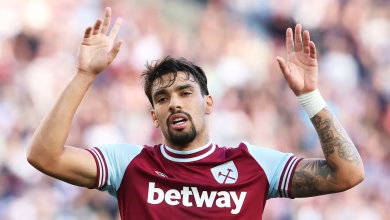Paris Paralympics Wraps Up, Closing Out French Capital’s Olympic Summer

- Uncertainty about the feel-good factor's longevity.
- Macron faced protests on Saturday.
- He was booed at the ceremony's start.
- Thousands protested his new conservative prime minister.
The summer sporting extravaganza that began under pouring rain on July 26 with a stunning Seine River opening ceremony concluded on Sunday with a rain-drenched Paralympics closing ceremony at Stade de France.
The successful back-to-back events captivated fans and set a high bar for future hosts, with Los Angeles now looking to 2028.
As the Stade de France was illuminated in the French national colors, a trumpet played “La Marseillaise” and Paralympic flagbearers entered to the tune of Vangelis’s “Chariots of Fire.”
Tony Estanguet, head of the Paris 2024 Olympics, declared in his closing speech, “Everyone can see what an inclusive world is like. Now there is no turning back.”
International Paralympic Committee President Andrew Parsons praised France for its exceptional hosting of both the Olympics and Paralympics, stating, “Paris 2024 has set a benchmark for all future Paralympic Games. France is now not just famous for its fashion and food, but also for its fans.”
At the closing ceremony, the 76-year-old Jean-Michel Jarre played tunes as if in a Parisian nightclub, undeterred by the pouring rain.
Artistic director Thomas Jolly aimed to transform the stadium into a massive open-air dance party. Following Jarre, over 20 DJs, including Étienne de Crécy, Martin Solveig, and Kavinsky, paid tribute to French electro music under the theme “Journey of the Wave.”
The event concluded with a heartfelt wave goodbye from the 64,000 fans and the city of Paris to the more than 4,000 Paralympic athletes.
Following the vibrant showcase of global fans and iconic venues during the Olympics, there were concerns about whether the energy would carry into the Paralympics from August 28 to September 8.
Those concerns were quickly put to rest, as athletes received robust support throughout the Games. Although not all venues were sold out—partly due to the end of summer vacation and the return of children to school—the enthusiasm remained high. A total of 2.4 million tickets were sold out of 2.8 million, just shy of the 2.7 million sold at the 2012 London Games, with ticket sales surging significantly from just 1 million by late June.
While some Parisians left the city due to concerns over traffic, political upheaval, social tensions, and security issues, those who stayed, along with fans from other regions, provided strong support for the athletes.
France finished the Olympics with 16 gold medals out of 64 total, placing fifth overall, and secured 75 medals in the Paralympics.
The Games were a triumph for French President Emmanuel Macron. Transportation ran smoothly, organizational hiccups were minimal, and security concerns were effectively managed. Remarkably, police officers even engaged in friendly exchanges and posed for photos with fans, a rare sight in France.
It remains to be seen how long the feel-good factor will last.
An early sign of the shift came on Saturday, when thousands protested President Macron’s appointment of a conservative new prime minister. Macron also faced some boos when introduced at the beginning of the ceremony.






